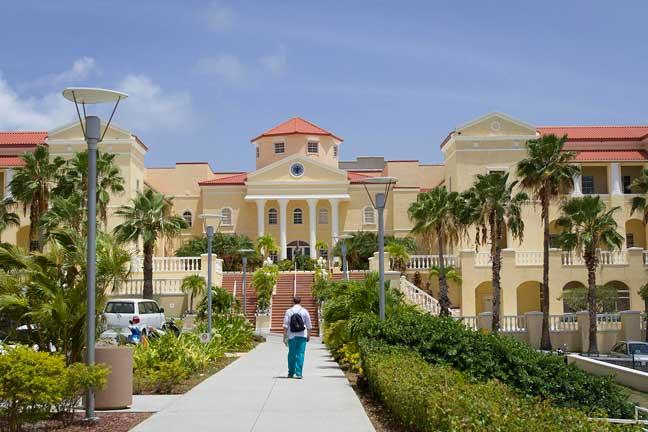Nurturing Global Healers: What to Look for in US Offshore Medical Schools

In the realm of medical education, US offshore medical schools have carved a unique path for aspiring physicians. These institutions often attract students with diverse backgrounds, including non-traditional candidates, career-changers, and those who were unable to secure admission in the US due to the limited number of available spots in medical schools. The Caribbean and Central America, among other regions, host a range of offshore programs that cater to American students seeking an opportunity to pursue their medical education. While offshore schools have faced both criticism and skepticism, they have demonstrated a capacity to produce skilled and qualified physicians who contribute to the healthcare system.
Offshore graduates who were once uncertain about their placement prospects have found their niche under the guidance of US offshore medical schools, doctors, and physician recruitment firms. These firms are equipped with knowledge about the requirements of different specialties, the preferences of healthcare facilities, and the unique strengths of the doctors they represent. Whether it’s placing physicians in community health centers, prestigious teaching hospitals, or specialized clinics, each of these entities plays a critical role in ensuring that the placements align with both the candidate’s capabilities and the institution’s needs.

Placement Rates: Assessing What Offshore Medical Schools Provide
One crucial consideration in assessing US offshore medical schools is analyzing the placement rates of their graduates. According to the Educational Commission for Foreign Medical Graduates (ECFMG), a significant and growing percentage of physicians who complete their medical education at offshore schools successfully match into US residency programs.
The 2023 Main Residency Match report released in March stated that nearly 68% of non-US citizen international medical graduates (IMGs) and 60% of US citizen IMGs from offshore schools secured a residency position in the United States. According to William W. Pinsky, MD, President of the ECFMG, the record number of primary-care positions shown in this year’s Match report is a positive development, since IMGs frequently pursue primary-care specialties.
While these figures demonstrate a notable and growing success rate, they also underline the importance of distinguishing between various offshore schools. Graduates from established and accredited institutions tend to have higher placement rates. For instance, there is a set of accredited offshore schools in the Caribbean traditionally referred to as “The Big Four”. Each one has a residency match rate far above the average for offshore schools: St. George’s University School of Medicine (95%), American University of the Caribbean School of Medicine (92%), Saba University School of Medicine (94%) and Ross University School of Medicine (92%). In comparison, on average the US medical school match rate of graduates into a residency program is 94%.
What Factors Influence Physician Placement from Offshore Medical Schools?
The above statistics underscore the impact of offshore medical schools in supplying the US healthcare system with qualified physicians. A closer examination reveals the nuanced interplay between physician capabilities, specialties, and the guidance of physician recruiting firms in helping match graduates with the specialties in demand that complement their strengths. Below are some key factors that contribute to the varying placement outcomes of physicians from US offshore medical schools.
Accreditation
Accreditation by recognized bodies such as the Caribbean Accreditation Authority for Education in Medicine and other Health Professions (CAAM-HP) validates the quality of education provided by offshore schools. Graduates from accredited institutions often find it easier to secure residency positions and licensure.
Clinical Rotations and Experience
The extent and quality of clinical rotations play a crucial role in preparing medical students for the rigorous demands of residency. Schools that offer robust clinical training and hands-on experience tend to produce graduates who are better equipped for competitive residency programs.
Licensing Examinations
Success on licensing exams, particularly the United States Medical Licensing Examination (USMLE), is essential for securing residency positions. Graduates who perform well on these exams enhance their chances of matching into competitive programs.
Networking and Connections
Offshore medical schools that have strong affiliations with US healthcare institutions and residency programs provide students with valuable networking opportunities. These connections can lead to more favorable placements and greater access to mentors.
A Global Spectrum of Healers
US offshore medical schools serve as an alternative avenue for individuals passionate about medicine, and their graduates enrich the US healthcare landscape. The journey from offshore classrooms to US residency programs and medical practice is multifaceted. It may require support in matching physician skills with institutional needs, creating a synergy that benefits both parties.
While critics may raise concerns about the quality of education and the potential challenges faced by graduates, the data and success stories illustrate the effectiveness of these institutions in producing skilled and qualified physicians. Through accreditation, robust clinical experiences, exam success, and networking opportunities, graduates from US offshore medical schools are positioned to make impactful contributions to the healthcare industry while addressing physician shortages in the United States.
